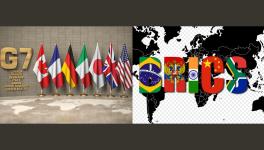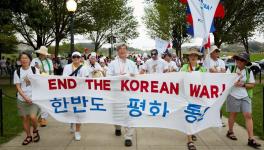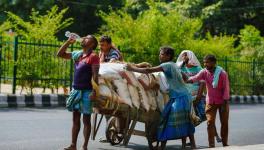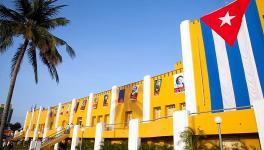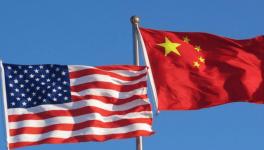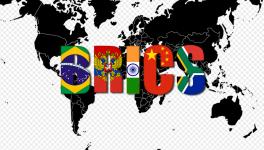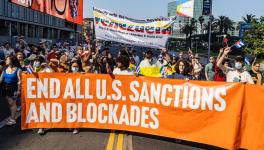Puerto Rico and Cuba Hit by Hurricanes – the Contrast
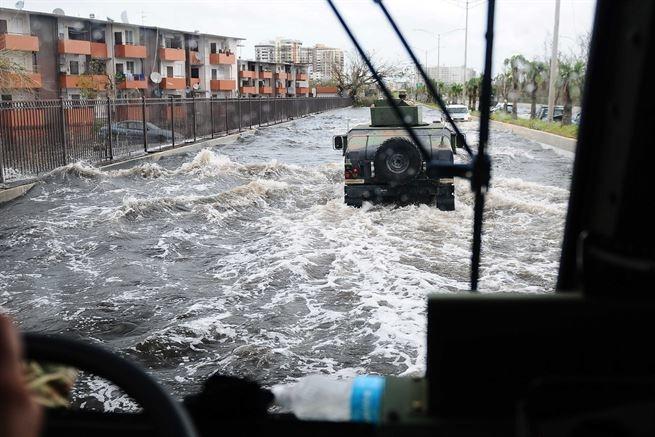
The conditions are desperate in Puerto Rico for its 3.5 million people even after nearly two weeks of the hurricane hitting the island. People are standing in line for food; 95% of the island is without power; more than half are without drinking water; only 11% of cell phone towers are working; no help has reached the remote areas.
While Puerto Rico is officially a part of the US, Puerto Ricans remain as second class citizens, with most Americans not even knowing that Puerto Rican is a part of the US.
Responding to San Juan Mayor's call for urgent help, “..we are dying”, President Trump called the San Juan Mayor “politically ingrate”. San Juan is the capital of Puerto Rico. He also lambasted her for “...poor leadership ability by the Mayor of San Juan..”.
People pointed out that while he was playing golf and hitting out at the Mayor Carmen Yulin Cruz, she was standing in waist-deep floodwaters with a bull-horn.
Speaking to CNN, the Vermont Senator and former Presidential candidate Bernie Sanders said, “Speaking from his fancy golf club, playing golf with his billionaire friends, attacking the mayor of San Juan who is struggling to bring electricity to the island, it is unspeakable.”
Excerpts from the statement by over two hundred scholars on the humanitarian crisis in Puerto Rico following the destruction by Hurricane Maria below shows the extent of the crisis.
Statement by 200 Scholars on Hurricane Maria and Puerto Rico:
The State of Facts
Puerto Rico is experiencing a humanitarian crisis as a result of Hurricane Maria, which struck the island on Wednesday, September 20, as a Category Four hurricane. Immediately thereafter, Governor Roselló declared a curfew from dawn to dusk for security reasons. More than a week after the event, hundreds of communities are still flooded, isolated without any food or drinking water, as highways and roads are blocked or destroyed, making communication between towns, neighbourhoods and cities impossible. Telephone, internet, drinking water and electricity services have not been re-established in most communities. The weather radar was destroyed as well as the surveillance towers at the San Juan International Airport. There is a public health crisis due to the precarious conditions in hospitals and the threat of epidemics stemming from contaminated water. Cities, towns and neighbourhoods outside the metropolitan area have been abandoned, and efforts are concentrated in the San Juan metro area. The western part of the island, for example, lacks minimum services.
The images shared with the world by visibly shaken journalists, television anchors, and meteorologists speak of the human drama caused by the disaster. What is missing from many of those reports is concrete information of plans and immediate, achievable initiatives to move the country ahead, as well as an ongoing plan. Explanations are necessary for why so many efforts to reach, house, feed and clothe many Puerto Ricans are unsuccessful...The state of precariousness in which the entire population of the island finds itself forces individuals to concentrate all of their strength on survival...This state of emergency could be used to promote new measures of austerity that will not benefit Puerto Rico, a country already devastated by the financial disaster of an unpayable debt.
...
Puerto Rico is a colony of the United States. Its political status stems from the U.S. invasion of 1898 and a series of laws that served only to consolidate U.S. control, hindering the possibility of Puerto Rican sovereignty and political emancipation. One such law is the Merchant Marine Act of 1920, or Jones Act, which determines that Puerto Rico's maritime waters and ports are controlled by U.S. agencies. The limits on shipping imposed by the Jones Act double the cost of consumer goods arriving at our shores, since they curtail the ability of non-U.S. ships and crews to engage in commercial trade with Puerto Rico. The recent legislation, PROMESA (or “promise,” a cynical and injurious acronym for the Puerto Rico Oversight, Management, and Economic Stability Act)...represents Congress’ most significant overt act to restate its colonial authority over Puerto Rico in total disregard of democracy, republicanism, and popular sovereignty. Here is where the need to repeal PROMESA and the Jones Act intersect, as both are exercises of colonial power to further the economic and political interest of the metropolis. At this time of humanitarian crisis and dire times for Puerto Rico Washington will not act in the best interest of the people of Puerto Rico by repealing both PROMESA and the Jones Act.
...It is necessary to repeal the Jones Act, which imposes restrictions on the entry of other vessels to the island, even if their intention is only to offer humanitarian aid. It is necessary to abolish the PROMESA Law, since Puerto Rico cannot be rebuilt on the basis of an unpayable and fraudulent debt. Both laws condemn the country to an unsustainable economic future that will intensify the exodus of Puerto Ricans from their island.
The manner in which aid delivered to Puerto Rico has been confiscated and controlled by FEMA, along with the refusal to assist Puerto Rico in a manner similar to that offered to mainland localities affected by Hurricane Irma, for example, shapes our interpretation of this event. It subjects the inhabitants of a territory in crisis to the limits of what a federal agency is willing to do, and denies aid that may come from other countries at this critical time. Beyond the paternalism that this implies, it turns Puerto Ricans into hostages of their colonial condition.
…The recent statements by President Trump are unworthy of any president. In the midst of a humanitarian crisis, he demands payment of the credit debt. Immediate actions must be taken. The PROMESA law and the Jones Act must be repealed. This is not the time to invoke the false rights inherent in second-degree citizenship, but to claim the right of every human being to life.
...Contrast this with the quick recovery after being hit by a hurricane of equal intensity – the Hurricane Irma as reported by Medicc, a non-profit that works on US-Cuba health collaboration.
Medicc Report on Cuba
General Situation
Thirteen of Cuba’s 15 provinces were hit by Hurricane Irma, the first category-5 storm to barrel through since 1932. The north-central coastal regions and keys bore the brunt, and because of the size of Irma, Havana wasn’t spared. Long stretches of the seaside Malecón wall were simply washed away with adjacent streets, homes, businesses and hospitals caught in the rushing waters.
Damages were most severe in central Cuba, home to 2.3 million Cubans, and in parts of Havana, home to 2.2 million.
87% of the population affected now has both electricity and water. No outbreaks of infectious diseases are reported, and cleanup is prioritized in both the capital and hardest-hit central provinces. Food processing centers are operating in all these provinces, and cooked food is being distributed in shelters (where 26,000 remain of the 1.7 million evacuees) and in areas without electricity.
Teaching activities have resumed throughout the country as of September 18, with some damaged schools already repaired and in other cases, classes moved to other facilities, including homes.
...
Get the latest reports & analysis with people's perspective on Protests, movements & deep analytical videos, discussions of the current affairs in your Telegram app. Subscribe to NewsClick's Telegram channel & get Real-Time updates on stories, as they get published on our website.











